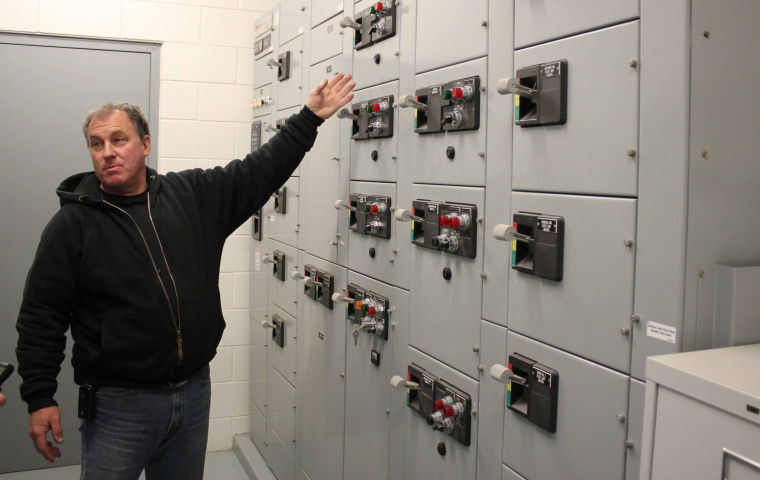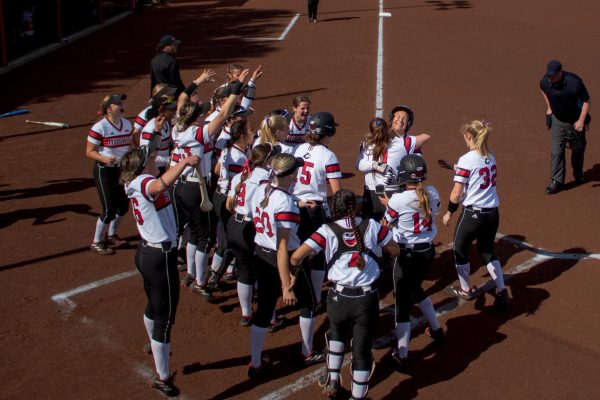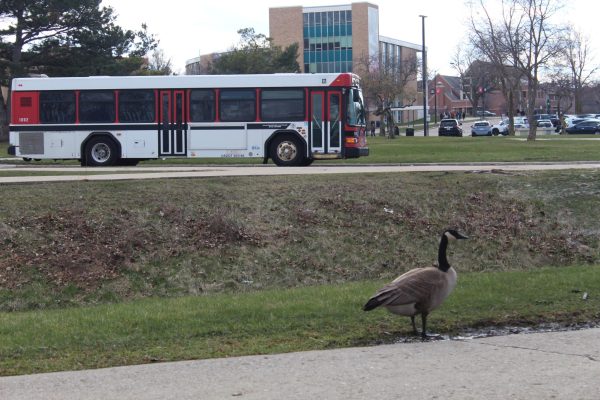DeKalb keeps water treatment plants up-to-date
Treatment Plant Operator, Danny Wells explains daily inspections, routine checks, and emergency backup systems essential to the successful operations of the Dekalb pumping station and water filtration on Tuesday afternoon.
February 20, 2013
DeKalb takes water treatment seriously, as providing fresh, clean water is an essential part of the city’s duties.
DeKalb’s water supply is treated by five water treatment plants. One of these plants is located at 1522 W. Lincoln Highway; the water tower boasts the NIU Huskie logo.
According to Jacob Keck, distribution and production supervisor, DeKalb uses about 3.3 million gallons of water per day, and has about 5.7 million gallons available.
“If we ran all of our wells 24 hours a day, I think we could pump…12 million gallons,” said lab supervisor Matt Anderson.
This water treatment plant was constructed in 2000 and is supplied by two wells, one deep and one shallow, which are located 565 and 265 feet below ground, respectively. The deep well has the capacity to pump 965 gallons of water per minute, whereas the shallow well can pump 1,065 gallons per minute. The water tower has a maximum capacity of 1 million gallons.
“The towers are set at sea level, and they all are supposed to fill at the same time, and they all empty at the same time,” said plant operator Danny Wells.
DeKalb has no pumps in its water towers; the water pressure is reliant on gravity. The towers are never fully depleted in order to maintain about 55 pounds of pressure, according to Wells. The facility also compensates how much water is pumped when NIU students are on break. The groundwater pumps are disassembled about every 10 years for inspection and maintenance.
“We always move in fresh water so we don’t have stagnant water,” Anderson said.
While both wells supply the facility with water, they do not necessarily need to be used at the same time. Around 10 p.m., water will be pumped from the wells into the facility, and they must be shut off by 9 a.m. Running the pumps at night conserves more power than running during the day. “They will run together for about five hours,” Wells said. “However, we have it adjusted, one will run for about nine hours and then the other one will shut off at five [hours].”
Deep and shallow wells have different volumes of contaminants, and each water treatment facility compensates for this during filtration.
The plant houses two iron filters, both of which hold about 10,000 gallons. All water is filtered appropriately to ensure consistency.
The filters are flushed every 62 hours; the waste is deposited into a tank which is disposed of at the DeKalb Sanitary District, 303 Hollister Ave.
Everything in the plant is monitored 24/7 by a main computer. Each plant has a computer which communicates to the main facility, DeKalb Water Resources, 1216 Market St. The computer displays the status of the facility and any potential errors. In the event of a computer malfunction, the facility can be managed manually. An employee is always on call in case an alarm is triggered.
Every plant is inspected daily, and repairs are made when needed. Because DeKalb has five treatment plants, employees are able to shut down several pumps for repair if need be, with no effect to the city’s water supply. DeKalb’s water treatment centers are also equipped with generators in case of a power outage.
“We’re so familiar with our system, we can catch something, and we’ll just plan it out,” Wells said.













